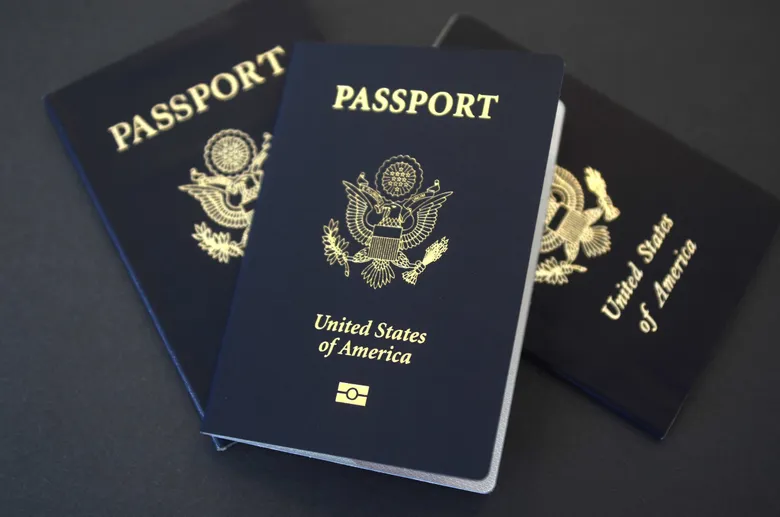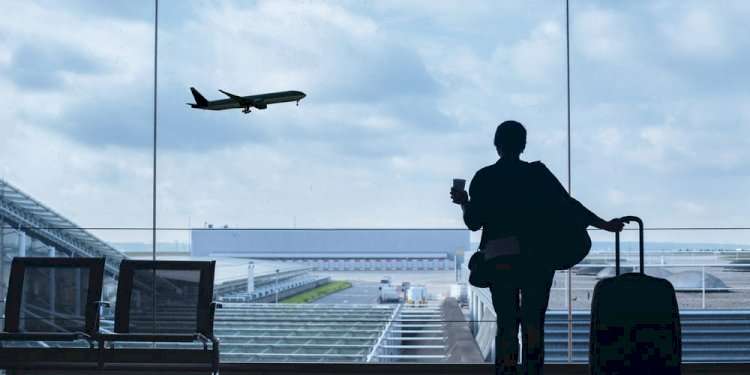Losing your passport in a foreign country can be a nerve-wracking experience, but it’s a common issue that many travelers face. Imagine you’re wandering through the streets of Istanbul and suddenly you realize your passport is missing. Panic might set in, but it’s important to remember that losing a passport abroad is not the end of the world. With the right steps and a calm approach, you can handle the situation efficiently. Here’s a comprehensive guide on what to do if you lose your passport in another country, including detailed steps, practical tips, and helpful advice to get you through this stressful situation.
Stay Calm and Retrace Your Steps
The first and most crucial step is to stay calm. Losing your passport can induce anxiety, but panicking will only make it harder to think clearly. Take a deep breath and try to remember where you last saw your passport. Ask yourself the following questions:
- When did I last use my passport? Think back to the last time you needed to show your passport—was it at a hotel check-in, a currency exchange, or perhaps at a border crossing?
- What places have I visited since then? Consider all the places you’ve been, including restaurants, tourist attractions, public transport, and shops.
- Did I hand my passport to anyone? Sometimes, we hand over our passports for identification purposes and forget to retrieve it. Think if this could have happened to you.
Retrace your steps meticulously. Start from your current location and go back through the places you visited. Check every nook and cranny of your bags, pockets, and accommodation. Often, passports are misplaced rather than lost, and you might find it in an unexpected spot. If you are with a travel companion, ask them to help you search as well—they might think of a place you haven’t checked yet.
Report the Loss to Local Authorities
If, after a thorough search, you still can’t find your passport, the next step is to report the loss to the local police. This step is essential because a police report will be a key document in applying for a replacement passport at your embassy or consulate. Here’s how to go about it:
- Find the nearest police station: Ask locals, check with your hotel, or use a navigation app to locate the nearest police station.
- Prepare for potential language barriers: In many countries, police officers might not speak your language. It can be helpful to have a translation app on your phone or a phrasebook to communicate effectively. If possible, ask someone who speaks the local language to accompany you.
- Provide necessary details: Be ready to provide specific details about the loss, including where and when you believe the passport went missing. If your passport was stolen, mention any suspicious activities or people you may have encountered.
- Get a copy of the police report: Ensure you receive an official copy of the police report or at least a reference number. You will need this for your embassy visit.
Having a police report not only helps in getting a replacement passport but also serves as a protective measure against potential identity theft.
Contact Your Country’s Embassy or Consulate
Once you have filed a police report, your next step is to contact your country’s nearest embassy or consulate. Here’s a more in-depth look at what you need to do:
- Locate the embassy or consulate: Most countries have embassies or consulates in major cities. You can find their locations online or ask your hotel or a local tourist office for directions. Keep in mind that smaller cities might not have an embassy, but there could be a consulate or honorary consulate that provides limited services.
- Prepare necessary documents: To apply for a replacement passport or an emergency travel document, you’ll need to bring the following:
- A copy of your police report.
- Any other identification you have, such as a driver’s license, photocopies of your lost passport, or a citizenship certificate.
- Passport-sized photos (most embassies require two). If you don’t have these, you can usually get them taken at a nearby photo booth or store.
- Proof of travel plans, such as flight tickets or travel itineraries.
- Call ahead: Before heading to the embassy or consulate, call them to explain your situation. This can save time and ensure you have all the required documents. Some embassies operate by appointment only, especially in larger cities or busy periods.
Fill Out the Necessary Forms and Pay the Fees
When you arrive at the embassy or consulate, you will need to fill out specific forms to report your lost passport and apply for a replacement. Here’s what you should expect:
- Complete a Passport Application Form: This form will require detailed information about your personal history, the circumstances of your lost passport, and your current travel plans. Be prepared to answer questions such as when and where your passport was issued and details of your itinerary.
- Provide a Statement of Loss or Theft: Some embassies require a separate form where you explain in detail how your passport was lost or stolen. Be honest and clear in your description, as this helps the embassy assess your case.
- Pay the Application Fees: Replacing a passport or getting an emergency travel document usually involves a fee. The amount varies depending on your country of citizenship and the type of document you’re applying for. Fees can range from $50 to $200 or more, depending on the urgency and the consular services involved. Most embassies accept credit cards, but it’s a good idea to have some cash on hand just in case.
What to Expect While Waiting for Your Replacement Passport or Emergency Travel Document
Once your application is submitted, you’ll need to wait for the issuance of your replacement passport or emergency travel document. Here’s what you need to know:
- Processing Times: The time it takes to process a replacement passport can vary significantly. Standard processing can take several days to a few weeks, depending on the country and your specific situation. If you need to travel urgently, you may request an emergency travel document, which can sometimes be issued on the same day or within a few days.
- Emergency Travel Document: If you’re near the end of your trip or need to return home quickly, the embassy might issue an emergency travel document. This is usually a one-way travel document that allows you to return to your home country but may not be accepted for entry into other countries. Once home, you’ll need to apply for a new regular passport.
- Accommodations and Expenses: During this waiting period, you’ll need to arrange for accommodation. Some hotels might require a passport for check-in, so explain your situation and show them the police report or any temporary identification you have. If your travel insurance covers lost documents, they may help with accommodation expenses or provide a daily allowance. It’s also wise to budget for additional costs, including extended accommodation, transportation, and meals.
Inform Your Family, Friends, or Employer
Communication is key when you lose your passport abroad. Make sure to inform those who need to know:
- Family and Friends: Let your family and friends know about your situation. They might offer valuable advice, provide financial assistance if needed, or simply give moral support, which can be incredibly reassuring during a stressful time.
- Employer: If you’re traveling for work or have deadlines to meet, inform your employer as soon as possible. They may be able to assist by contacting the embassy or consulate on your behalf, or they might need to make arrangements for your delayed return.
- Travel Companions: If you’re traveling with others, keep them informed as well. They may need to adjust their travel plans to accommodate your situation or provide you with support.
Protect Yourself from Identity Theft
Losing your passport can make you vulnerable to identity theft. Here’s how to protect yourself:
- Notify Your Government’s Passport Agency: Report the loss to your government’s passport agency as soon as possible to prevent someone from using your passport illegally.
- Monitor Financial Accounts: If you had other forms of identification or credit cards with your passport, monitor your bank and credit accounts closely for any unusual activity. Consider placing a fraud alert on your accounts as a precaution.
- Secure Your Personal Information: Avoid sharing too much personal information online or with strangers during this period. Be vigilant about where and to whom you provide personal details.
Preventive Measures for Future Travel
Now that you’ve been through the experience of losing a passport, it’s time to take steps to prevent it from happening again. Here are some preventive measures:
- Make Multiple Copies of Your Passport: Before you travel, make several copies of your passport. Leave one at home with a trusted person, keep one in your luggage, and carry another in a different location, like a hidden pocket. Additionally, save a digital copy on a secure cloud service or email it to yourself.
- Use a Money Belt or Neck Pouch: Keep your passport close to your body in a money belt or neck pouch, especially in crowded places or when you’re out and about exploring.
- Stay Aware of Your Surroundings: Be mindful of your belongings at all times, especially in busy areas, on public transport, or when engaging with strangers. Thieves often target distracted tourists.
- Consider Travel Insurance: Some travel insurance policies offer coverage for lost or stolen passports, including the cost of obtaining a replacement and even providing emergency funds for accommodation and transportation if needed. Check your policy for details or consider purchasing one that covers such incidents.
Final Thoughts on What to Do When You Lose Your Passport in Another Country
Losing your passport in another country is undeniably stressful, but it doesn’t have to be a disaster. By staying calm, following these steps, and knowing the procedures, you can navigate the situation effectively. Remember, embassies and consulates are there to help you, and with proper documentation and a bit of patience, you’ll be back on track in no time.
Safe Travels!






